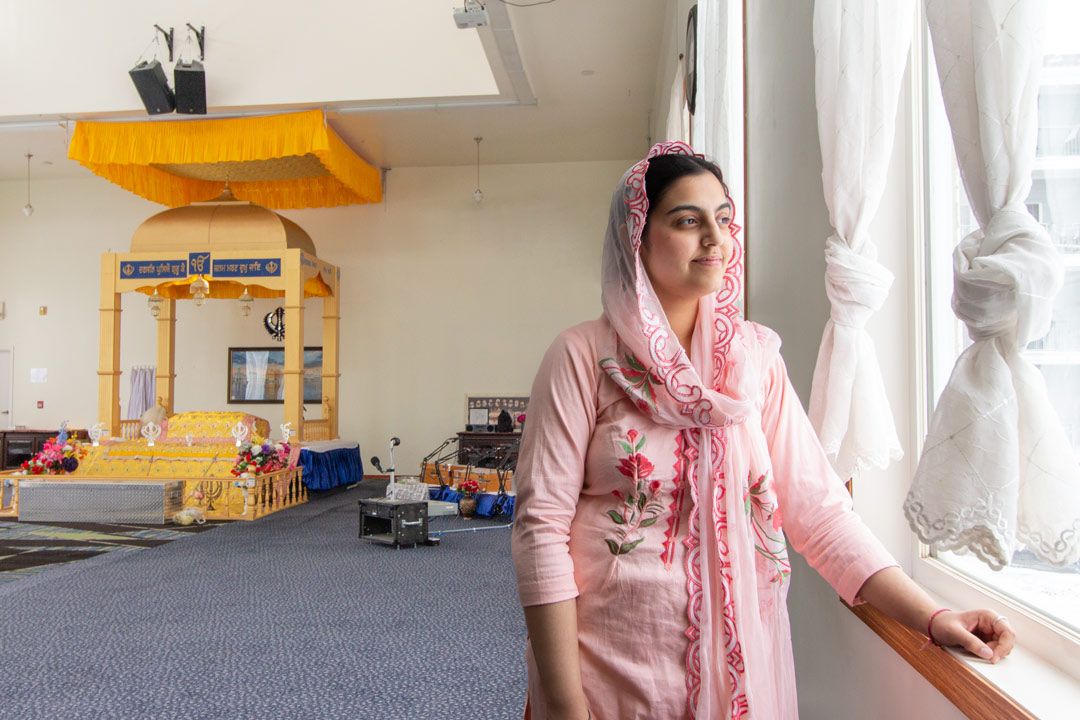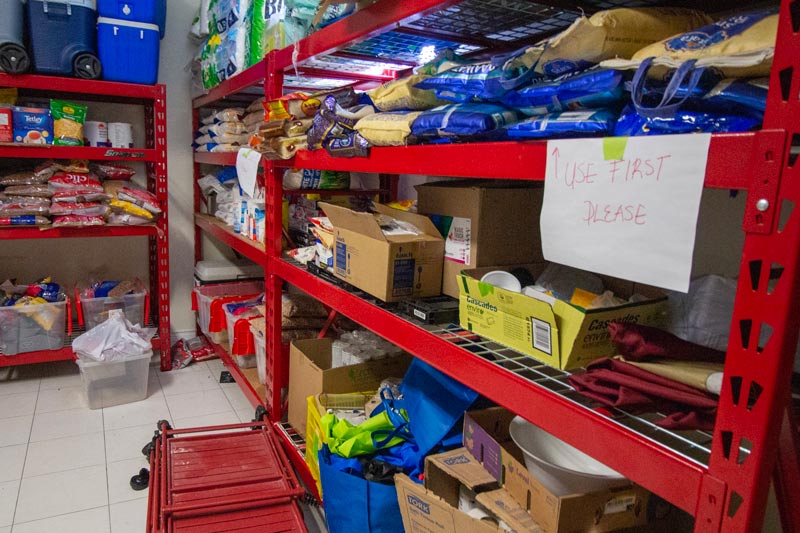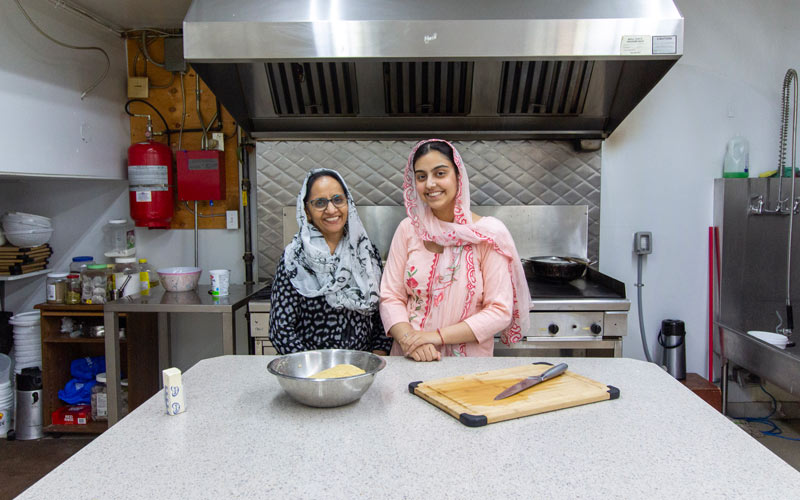
USask student puts sustainability lessons into practice
Health studies student Ramneet Jassal helped her Sikh temple reduce its environmental impact
By Chris PutnamLight streams through large windows to fill the main hall of Gurudwara Sahib in Saskatoon each day.
Until recently, the curtains of the gurudwara, or Sikh temple, on Lowe Road were closed during the day and the hall was artificially lit. Letting in the light was one of many changes initiated by University of Saskatchewan (USask) student Ramneet Jassal to make the gurudwara more sustainable.
The third-year health studies student in the College of Arts and Science has used knowledge she learned in the classroom to help lead a transformation in her community over the past few months.
“It felt very good to see not only sustainability being acted on, but also to see the community come together and work toward something,” said Jassal.
In the fall 2022 term, Jassal took Health Studies 310, a course on sustainability and planetary health taught by Dr. Ulrich Teucher (PhD). The course gave her a new way of looking at the world.
“Prior to that class, I didn’t even know what sustainability was,” she said.
Jassal and her family regularly attend the gurudwara in Saskatoon’s University Heights neighbourhood.
“The realization kind of started to hit me that that it’s not as sustainable as it could be. There’s always something we can do to make our communities more sustainable.”
Teucher’s class challenged students to find ways to apply the course’s lessons to their own lives and homes.
“For Sikh people, the gurudwara is like our home,” Jassal said.

As part of group work in the course, Jassal identified improvements that could be made at the gurudwara and wrote them into an action plan.
Others at the gurudwara—including volunteer coordinator Baljinder Dhaliwal and Jassal’s brother, USask engineering student Gurakash Jassal—had already been looking at ways to reduce waste, but they hadn’t managed to implement their ideas.
“(Ramneet) not only planned it but actually put it into practice,” said Dhaliwal.
Recycling and compost bins were an obvious place to start. The gurudwara hosts langar, a community meal, several days each week for more than 500 people. All food waste and empty packaging from these meals had been going to the landfill.
Jassal worked with Dhaliwal and her brother to approach the gurudwara’s organizing committee. Composting was a new idea to some of the Sikh elders, who at first were resistant.
“The gurudwara is supposed to be kept very clean everywhere, so for me to put in a compost bin, they kind of viewed it as me accumulating garbage in the kitchen. It was not seen as a clean thing,” Jassal said.
She set out to persuade the elders. Jassal drew on facts and resources from her health studies class and looked for ways to connect sustainability with other traditional values.
“For me to explain the importance of compost, I had to use the same values that they’re used to. I had to say, ‘Well, OK, we also value our future generations.’ And that’s very important to the Sikh community.”
Jassal convinced the committee, which left the question of how to pay for the new recycling and compost bins. She found the answer in the upstairs windows. By opening up the curtains to let in light during the day, the gurudwara saved enough money on its electricity bills to easily afford the bins.
“All that food was going in the garbage bin, which now will be going in the compost. I consider that a significant achievement, which is a diversion away from the landfill,” said Dhaliwal.

Jassal also created an inventory system for the gurudwara’s stored food. Older items on the shelves are now used first, reducing the amount of wasted food. When foods won’t be used before they expire, they are now donated to local non-profits.
Other initiatives led by Jassal and the other volunteers included a switch from disposable plastic dishware to traditional metal trays and utensils, and new signage educating community members on sustainability practices.
Teucher, Jassal’s health studies professor, said he was “stunned” when he learned what she had achieved. Many of his students have taken action on sustainability after taking his courses, but none to the same magnitude as Jassal.
“It is everything I could dream of. That’s what we would like to see,” said Teucher, an associate professor in the Department of Psychology and Health Studies, and a USask Sustainability Faculty Fellow.
Teucher and Jassal plan to give a presentation together at the International Congress for Qualitative Inquiry at the University of Illinois in May. Jassal’s efforts are a “shining example” of classroom learning applied to the community, said Teucher.
“It’s important for sustainability that we all can put our knowledge and our practice together. And this combination is just so strong in Ramneet. It’s not either university or community, but both working hand in hand.”
Jassal stresses that she was only a small part of the changes at the gurudwara. She credits Teucher with providing the knowledge and her entire community—from children to elders—for making the ideas a reality.
“As long as I’m here, and even after me, I know that the community as a whole will keep these changes going, because they truly do understand the importance and have supported each step of the way,” she said.
When she first learned about sustainability topics, the knowledge felt like a burden to Jassal. She felt powerless to respond to the damage being done to the planet.
For her, taking action lifted the burden.
“To start with small changes and kind of get a whole community working towards it, it felt really good to see that it’s possible—change is possible. And everybody can contribute to the change.”
Together we will support and inspire students to succeed. We invite you to join by supporting current and future students' needs at USask.

